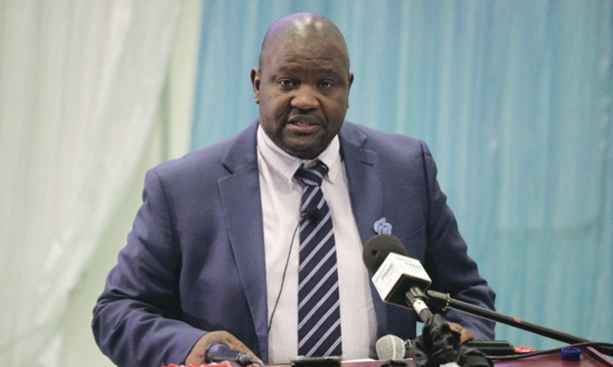Botswana’s attempts to build a Knowledge-based economy will take a serious effort to invest more in research so as to diversify the source of wealth that contributes to the country’s Gross Domestic Product (GDP) as well as diversifying the economy, say research experts.
Researchers, innovators and captains of the industry made this known during the Science, Technology, Mathematics and Engineering (STEM) festival that ran concurrently with the Research and Innovation Symposium (RAIS) at the Botswana International University of Science and Technology (BIUST) in Palapye this week.
The Head of Ore Processing at Debswana Mining Diamond Company, Edwin Elias, said the 0.3% GDP share for STEM cannot take Botswana closer to the pace setters in the knowledge economy race.
He said while the country may not possibly afford 3% of GDP share for Research and Development like nations such as Japan, Botswana should strive to direct at least 2% of GDP towards Research and Development.
“The National Policy on Research, Science, Technology and Innovation highlights the criticality of policies that stimulate the translation of scientific and technological capabilities into knowledge-intensive, value-added and services across all sectors of the economy,” charged Elias.
He said BIUST was established to become a vehicle for science and technology through research and technology transfer and urged it to double its efforts in engaging the private sector.
Elias is of the view that BIUST and private sector partnership is crucial for co-STEM development. He challenged the industry to realise the immeasurable potential it can ride on in partnership with the university.
Oabona Nthebolang, Manager for Graduate Research and Innovation at Human Resource Development Council (HRDC), said government should consider paradigm shift by fully funding the organs like HRDC mandated for research.
He bemoaned the P50 000 research and innovation grant administered by HRDC, saying it was insufficient to conduct a costly in nature innovative research in a long period of time.
Experts warned that Botswana will not see the reality of the knowledge economy under the current circumstances.
Government currently – through the ministry of Tertiary Education, Research, Science and Technology (MOTE) – is pledging 0.3% of GDP as funding for research in the STEM field.
Initially, BIUST Vice Chancellor Professor Otlogetswe Totolo said the STEM and RAIS projects are meant to highlight research’s innovation uniqueness or in-depth inquiry into issues that require solutions to challenges that communities face in the midst of 4th industrial revolution.
Meanwhile, the Assistant Minister of Tertiary Education Mosieraele Goya said the National Policy on Research, Science, Technology and Innovation (RSTI) of 2011 intends to create a supportive environment for research development.
He said this will impact economic growth by creating a robust national system of innovation, adding that the policy intends to increase funding in research and development to at least 2% of GDP as per the recommendation.
Goya revealed that currently, the government’s contribution to research and development stood at 0.07% of the GDP in 2016/17 financial year while in the previous year stood at 0.09%.
The STEM\RAIS was held under the theme “STEM Driven Economy: Transforming Research into Profitable Products and Services”.
